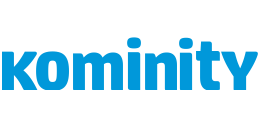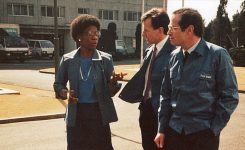Learning
Learning, Relearning and Unlearning
“The illiterate of the 21st century will not be those who cannot read and write, but those who cannot learn, unlearn and relearn” – Alvin Toffler
It has been established that a growth mindset results into personal and professional growth only through continual learning – which is best done by identifying one’s knowledge/skill gaps and filling it.
But how does one “fill” it? How does one learn continually? This happens in two broad ways – formally and informally.
Mabel Rawlings (B.Sc, M.Phil, MBA, PMP, ITIL, ITSM). That name with those academic titles? That’s formal learning at work.
Formal learning is the acquisition of knowledge and skills in a structured and supporting environment. It’s curriculum-driven, with certificates as evidence of competence and/or participation.
This has however been extended beyond the walls of the classroom to the internet. Today, several millions of people do part-time or online courses which does not need them to be in a classroom at all or just a few times for them to acquire the knowledge and skills they need.
It comes as taught, more interactive and a formal assessment of knowledge is made to test the knowledge acquired. However, this is not a guarantee of competence. This leads us to arguably the best form of learning and a necessary complement to formal learning; Informal learning.
Though Mabel Rawlings has an MBA in Marketing from Havard University and took a communication course during the program, she realizes she is not not a good presenter – a skill which is essential to her success in her new business development role.
She then decides to start reading books such as Stand and Deliver by Dale Carnegie and begins to watch Steve Jobs’ presentations such as the introduction of the IPad on YouTube. She also now reads articles and listens to podcasts on delivering presentations that work. This is informal learning in action.
This is a type of learning that is self-directed, self-driven, unrestricted in curriculum, improved by experience and sometimes acquired on the job. It has been proven that as much as 70% of our knowledge as humans are acquired informally.
Resources for informal learning include but are not limited to:
- Articles and Books; Read articles books that deal with specific skillsets that you might be lacking or you want to perfect.
- Where to get them? For hardbooks, visit bookstores or road-side sellers. Ebooks can be downloaded on the web by searching or by simply adding “pdf” to what you are searching online. You can buy ebooks or order hardbooks from sites like Amazon and Laterna titles that are not locally accessible.
- Struggling to finish a book? Start with the small ones. Read in bits by breaking them into pages or chapters to read on a daily basis. Borrow rather than buy, the pressure of returning it may drive you to reading it. Reward yourself for every book you finish reading.
- Audiobooks and Podcasts; these can serve as good alternatives to books as they can be listened to when commuting or doing your home chores. Podcasts go further to be interactive and can sometimes be interviews with experts at what you want to know more about.
- Where to get them? You can buy them from audible.com or freely download them from soundcloud.com. Just search for the topics you want on these websites. Another good source of high-quality podcasts, especially on communication is BBC.com
- Videos: these can be so much joy watch. YouTube brings to your device the video of several lectures, seminars and conferences, making it possible for you to have different videos on the same topic.
- For more interactive and highly structured videos on specific skillsets. You can access freemium websites such as Lynda, Udemy, Cousera etc.
- Presentations: A lot of these can be enjoyed by attending industry events such as seminars and conferences. You can also find them online by appending to the topic you are searching for on Google, “presentation”, “.ppt” or “.pdf”.
- Where to find a lot of them? Eventbrite.com remains a one-stop shop for finding events com. This is the YouTube of Presentations.
- Industry/Sector Updates: Don’t just follow the news. Dig down to specific news on your industry. This will keep you relevant on the latest developments and issues in your field. It will also keep you abreast on trends.
- How to get them consistently? You can subscribe to newsletters. Ensure that it is a weekly or monthly publication in order not to overload your inbox. You can also download an app that is delivers to updates in your industry.
As much as formal learning most times gives professionals a foot in the door. A lot of the knowledge and skillsets required for performance is acquired informally – newly or building on formally acquired knowledge.
This is even most true for soft/people skills which are needed to complement the hard/technical skills required to excel professionally.
Todo: Building on your knowledge and skill gaps that you have previously noted. Find a newsletter that you can subscribe to. This can be done by searching online for the noted skill gap with an addition of “newsletter.” For example, “Graphics design newsletter”, “Negotiation skills newsletter” or “Budgeting newsletter”. Sparing the time to do this today means you can continually receive insights and update on the subject in your inbox.



